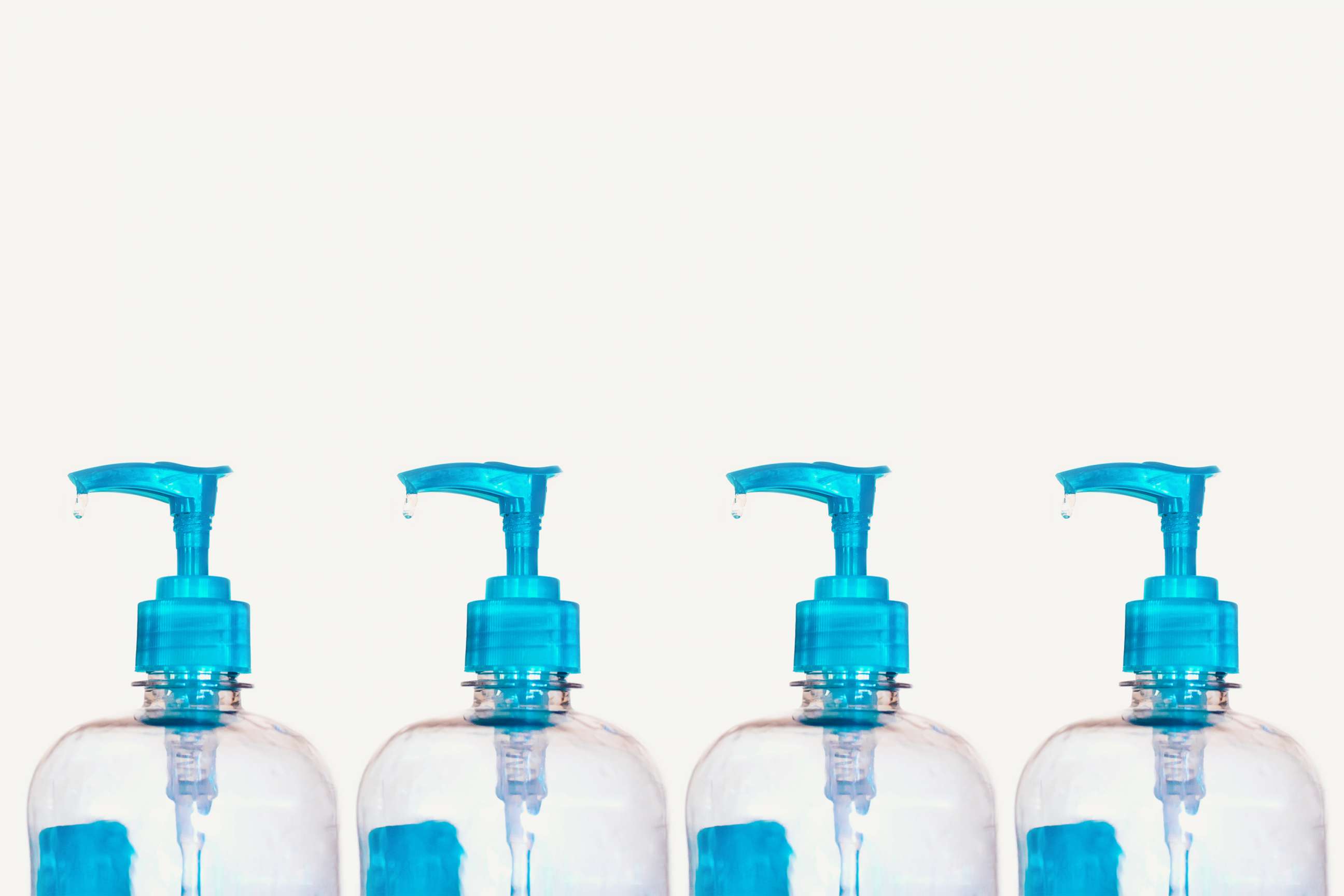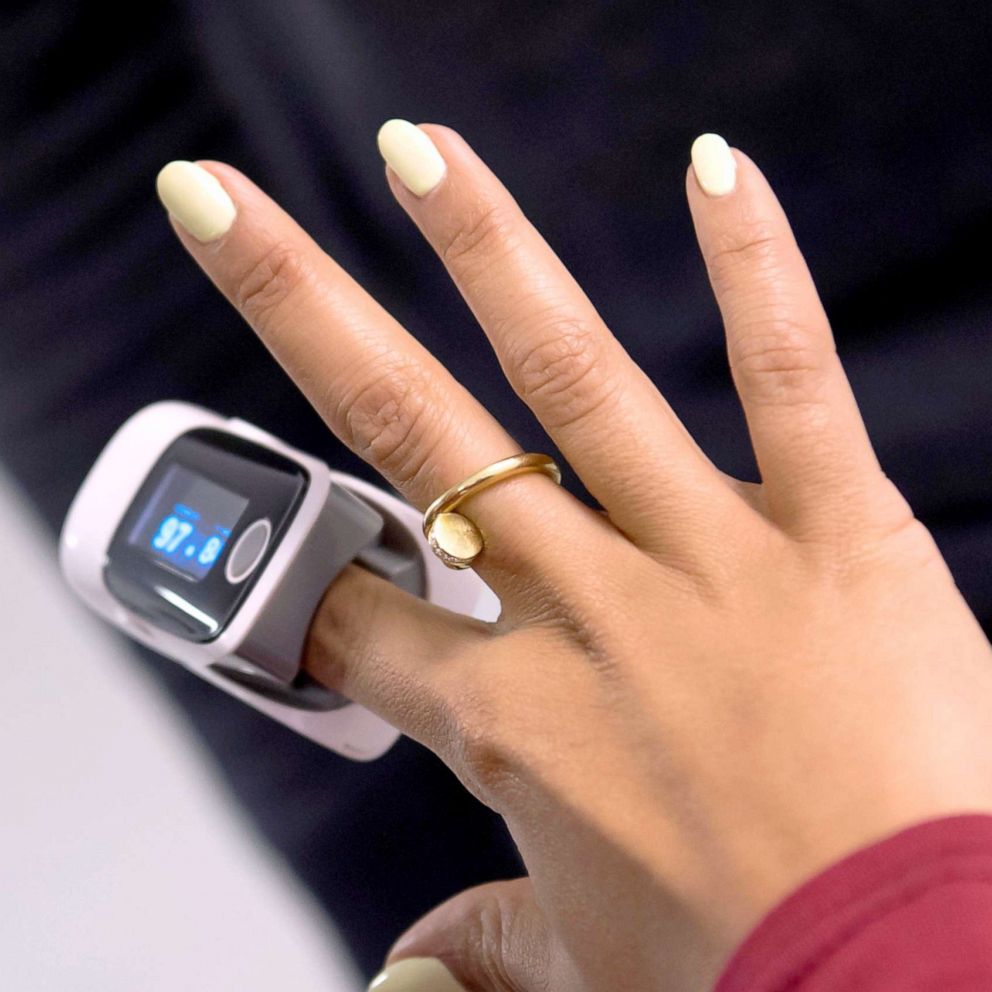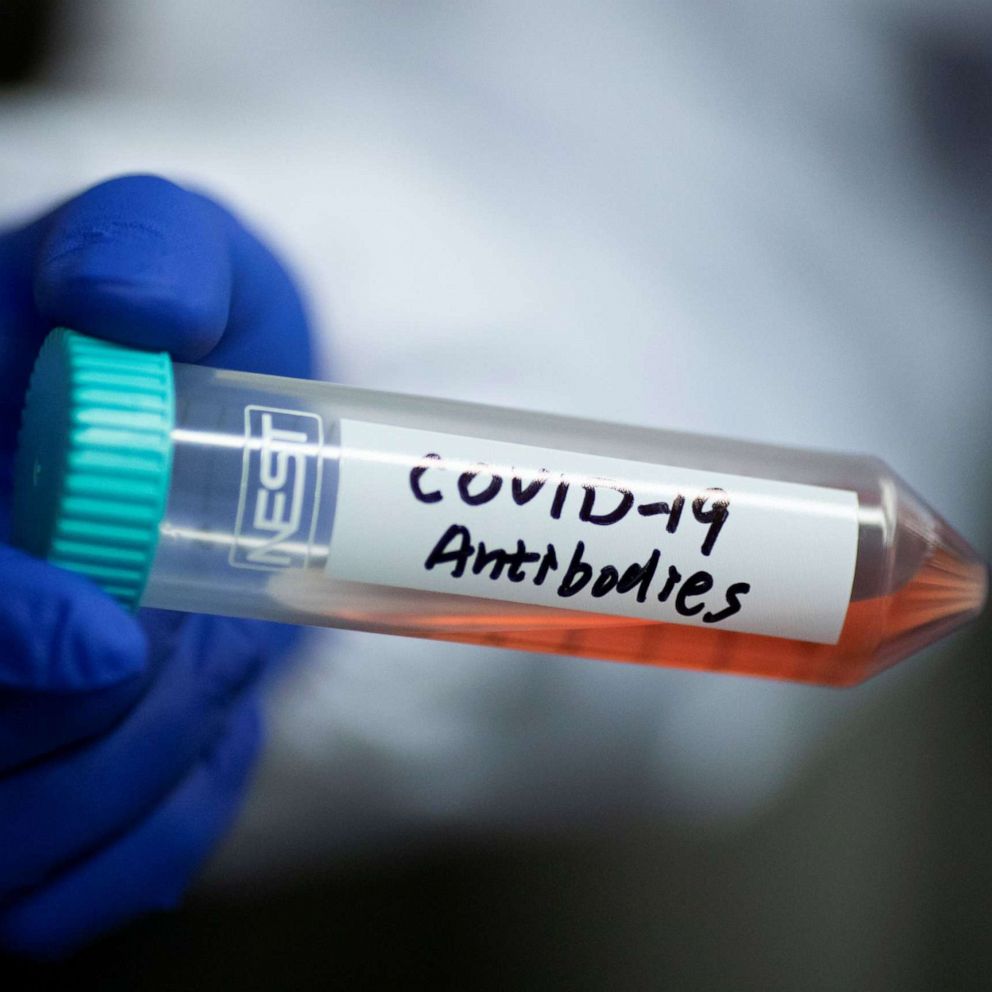More children ingesting hand sanitizers due to manufacturing lapses: FDA
There's been a 79% increase in the number of poison control calls.
As the novel coronavirus epidemic continues, horrific stories have been reported of children becoming sick from drinking hand sanitizers.
This week, the Food and Drug Administration warned that some of the 1,500 hand sanitizer manufacturers are skipping a vital step in production -- omitting the denatured alcohol that's needed to make the product bitter and less appealing to consume.
Denatured alcohol is ethyl alcohol made unfit for drinking by adding substances to make the alcohol unpalatable. If more than a few mouthfuls are swallowed, alcohol-based hand sanitizers can cause alcohol poisoning.
The FDA reminded manufacturers that skipping the step undermines public safety, in its warning.
"It is important that hand sanitizers are manufactured in a way that makes them unpalatable to people, especially young children, and that they are appropriately labeled to discourage accidental or intentional ingestion. Additionally, hand sanitizers are not proven to treat COVID-19, and like other products meant for external use, are not for ingestion, inhalation, or intravenous use," said FDA Commissioner Stephen M. Hahn.
The FDA warning comes after a 79% increase in the number of calls related to hand sanitizer to the National Poison Data System this March compared to March 2019. The majority of those calls were for unintentional exposure in children under 5 years of age.
"Many of the compounds that are used in hand sanitizers have a sweet or fruity taste and smell. These compounds, however, are often toxic or lethal if ingested. It is important that companies making these products add bitter compounds to prevent children from ingesting them," said Frank Cusimano, a human nutrition scientist from Midwestern University.
To address the increased call volume, earlier this week the U.S. Department of Health and Human Services, through the Health Resources and Services Administration, gave nearly $5 million to different Poison Control Centers.

Earlier this month, the FDA received a report of a 13-year-old who drank hand sanitizer packaged in a liquor bottle from a distillery. The sanitizer was not denatured and reportedly tasted like normal alcohol.
"Manufacturers need to remember to follow the FDA guidelines and not take unnecessary shortcuts to produce more hand sanitizer during the pandemic. While yes, there is a shortage of sanitizers, different ingredients in sanitizers come with different risks if they are accidentally consumed or ingested," Cusimano said.
Over 750 alcohol distilleries throughout the nation are making hand sanitizers according to the Distilled Spirits Council.
Nima Majlesi, director of toxicology, and an emergency room physician from New York City explained that while "all alcohols can cause intoxication" the "symptoms we would most worry about are sedation or excessive sleepiness, difficulty walking, vomiting, stomach upset, lung issues known as aspiration [where stomach contents can cause irritation of the lungs] and even low blood sugars. These are all treatable as long as they are recognized in a timely fashion and children are brought to the [emergency department]."
Children may be attracted to sanitizer packaging that is scented, brightly colored or attractive, making appropriate storage, child-resistant caps and adult supervision important.
Increased use of hand sanitizer and its availability increases the likelihood of exposure, Majlesi said.
"People are leaving hand sanitizer in places children have access to such as kitchens and bathroom countertops."
For more minor exposure, "hand sanitizers do contain alcohol and should be stored, like other potential poisons, out of sight and out of reach of children," as per the National Capital Poison Center website.
Officials with the Distilled Spirits Council of the United States, an industry advocacy organization, said they agree with the FDA's recommendations.
"We urge all distillers who are participating in this extraordinary effort to comply with the FDA guidance on the production of hand sanitizer and to ensure that the packaging is clearly labeled," the organization said in a statement. "We share FDA’s concerns regarding children inadvertently consuming hand sanitizer as the demand for this product increases due to COVID-19."
The organization also said it had recently launched a public awareness campaign reminding adults to keep hand sanitizer out of reach of children.
The FDA is also warning consumers about alcohol-free hand sanitizers, which are not effective.
One company, Prefense LLC, was caught selling alcohol-free hand sanitizer with unproven claims, touting that its product, "protects you from germs with just one application per day … providing up to 24-hour protection."
Alcohol-free hand sanitizers are not recommended for use by the Centers for Disease Control and Prevention. In health care settings, the CDC recommends alcohol-based hand sanitizers with greater than 60% ethanol or 70% isopropanol as the preferred form of hand hygiene.
The CDC recommends washing hands with soap and water for at least 20 seconds. Soap and water are more effective and necessary when hands are soiled or greasy and for certain germs that hand sanitizer cannot kill -- such as cryptosporidium, norovirus and clostridium difficile.
Hand hygiene continues to play an important role in infection prevention in the response to COVID-19.
Should a child ingest hand sanitizer, the National Capital Poison Center suggests checking the poison control online tool for guidance or calling Poison Control at 1-800-222-1222 right away for advice.
This story has been updated to include a statement from the Distilled Spirits Council of the United States.
Delaram J. Taghipour, MD, MPH, MBA is a preventive medicine resident at Johns Hopkins Bloomberg School of Public Health and is a contributor to ABC News.
What to know about coronavirus:
- How it started and how to protect yourself: Coronavirus explained
- What to do if you have symptoms: Coronavirus symptoms
- Tracking the spread in the U.S. and worldwide: Coronavirus map







